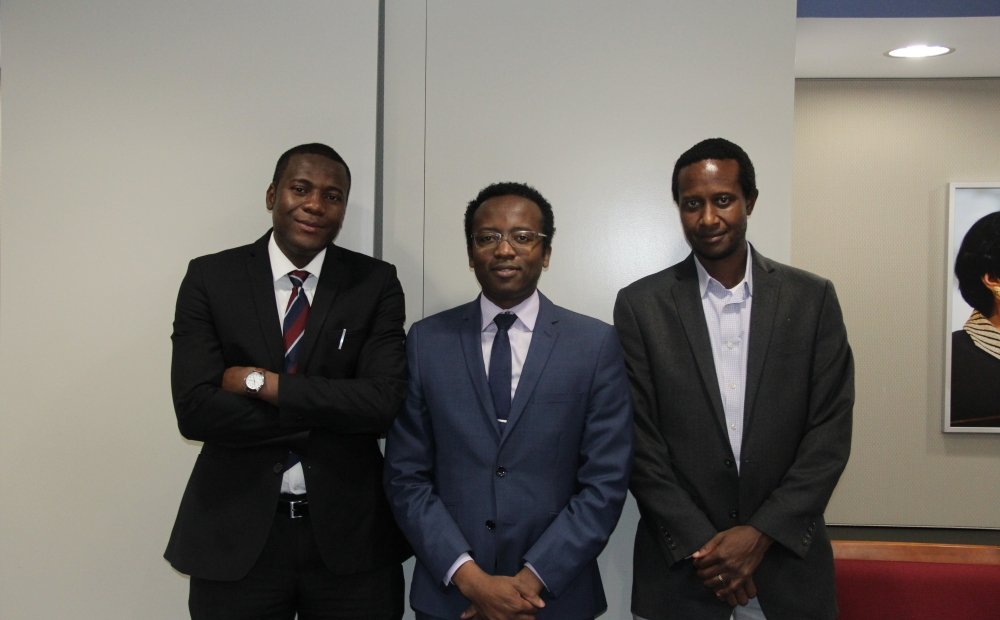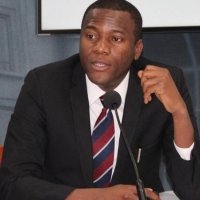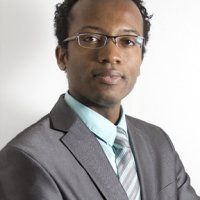The Economic Situation in Nigeria: Perspectives on the Forces that Shaped It and the Way Forward

On October 27, 2017, the Wilson Center Africa Program hosted a roundtable discussion on “The Economic Situation in Nigeria: Perspectives on the Forces that Shaped It and the Way Forward,” with Mr. Zuhumnan Dapel, a joint public policy fellow with the Wilson Center Africa Program and the Center for Global Development, and Professor James Habyarimana, Associate Professor at the McCourt School of Public Policy at Georgetown University. Professor Landry Signé, former Wilson Center Public Policy Fellow and current Rubenstein Fellow in the Global Economy and Development Program at The Brookings Institution, moderated the event. This roundtable discussion explored the factors behind weak economic performance in Nigeria, tracing key recent political and economic events and evaluating relevant policies. Speakers located the importance of oil within the larger economic picture and offered recommendations for reducing poverty and boosting economic transformation. Key recommendations for going forward included better coordination among government and private sector actors; easing access to economic performance information; focusing on the private sector as a player in development; and, improving democratic governance in Nigeria to create a reliable, supportive environment for growth.
Professor Habyarimana opened the discussion with an optimistic assessment of the economic transformation that has occurred in recent years in Nigeria, which has boosted the middle-income sector of the population. Labor has increasingly been shifting from agriculture and other low-productivity sectors into higher productivity sectors, such as manufacturing, finance, insurance, transportation, and communication. Challenges to this growth include the capacity for Nigeria to create opportunities for a growing youth population; Nigeria’s currently low ranking in terms of ease of doing business; and, the weaknesses of Nigeria’s infrastructure. Professor Habyarimana proposed that some of these challenges can be mitigated through improved coordination between the private and public sectors as well as improving access to information and encouraging entrepreneurship. Sound government intervention and heightened attention to strengthening the manufacturing sector are necessary if the formal economy is to expand and grow.
Mr. Dapel argued that, while oil has conventionally been considered a curse for the Nigerian economy, oil itself is not the problem, but rather the management of these resources. Fiscal-related corruption and unsound economic policies contributed to mismanagement, which has led to inflation, increased poverty rates, and lower standards of living in recent decades. The Nigerian Government must improve its responses to fluctuations in oil prices; specifically, it should refrain from over- and under-adjusting to changes in oil prices. Bureaucrats and the governing class have benefitted from weak institutions, which is one of the main challenges to improving economic policy. Institutions must be strengthened and the government should intervene by improving infrastructure and education in order to reduce chronic poverty and stimulate growth.
Speakers

Fellow, Scottish Institute for Research in Economics
Moderator

University of Alaska Anchorage; Stanford University
Hosted By

Africa Program
The Africa Program works to address the most critical issues facing Africa and US-Africa relations, build mutually beneficial US-Africa relations, and enhance knowledge and understanding about Africa in the United States. The Program achieves its mission through in-depth research and analyses, public discussion, working groups, and briefings that bring together policymakers, practitioners, and subject matter experts to analyze and offer practical options for tackling key challenges in Africa and in US-Africa relations. Read more
